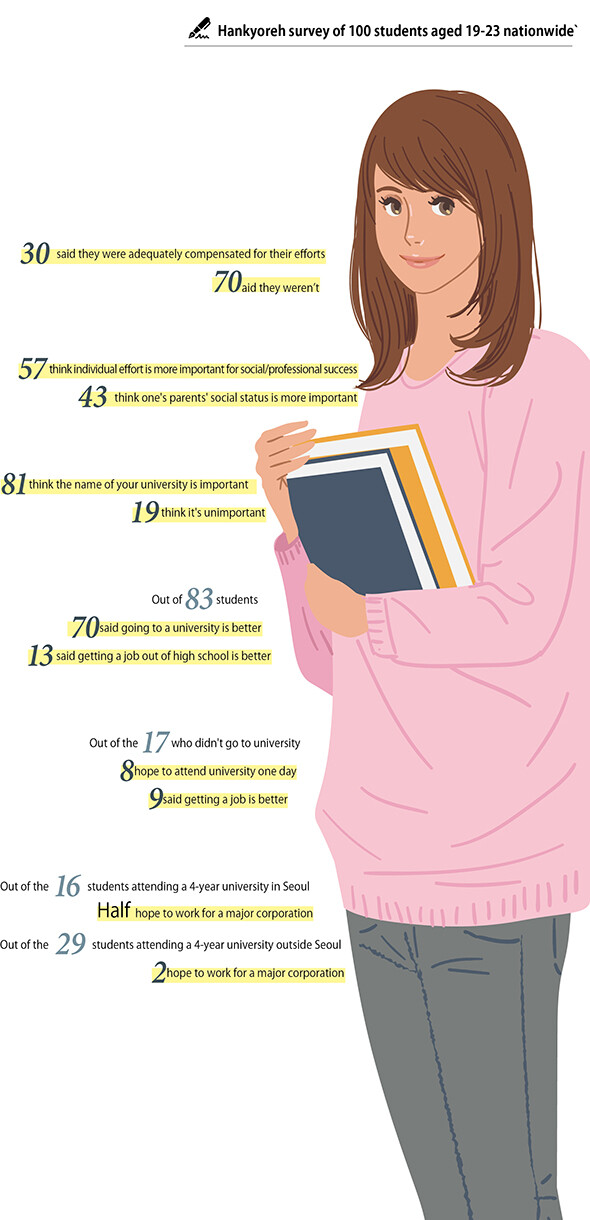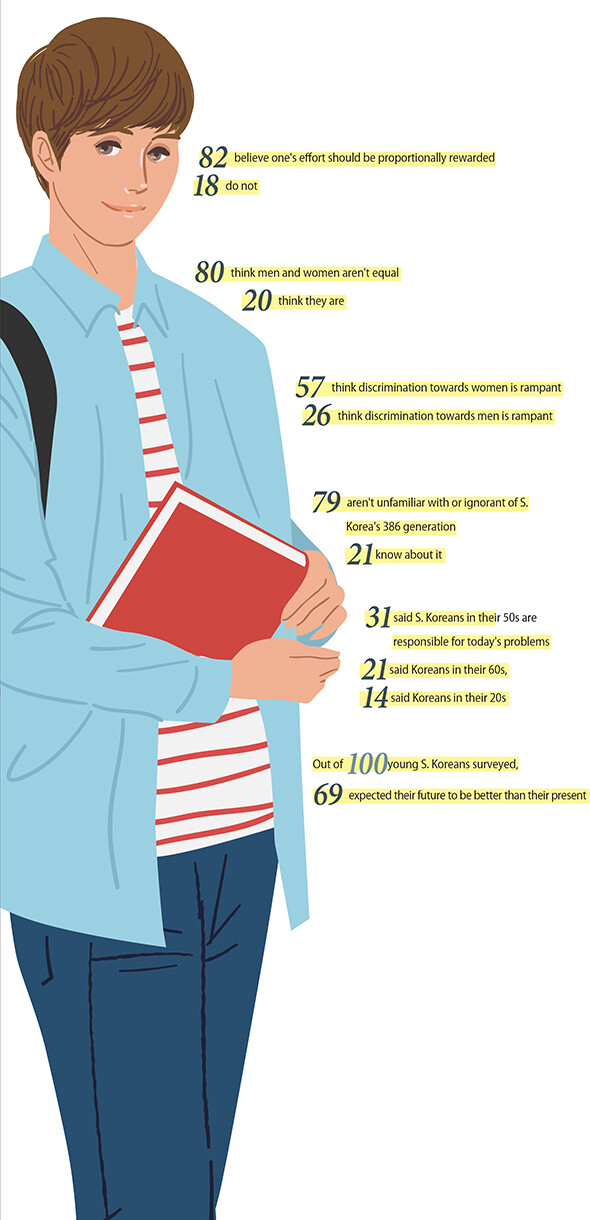Posted on : Dec.26,2019 10:26 KST
Modified on : Dec.26,2019 10:31 KST
A Hankyoreh survey finds students at provincial schools feel left out and left behind
I
 |
|
Hankyoreh survey of 100 students aged 19-23 nationwide
|
In the British House of Commons, two red “sword lines” have been drawn into the floor. The lines were put there to prevent the opposing lawmakers facing each other across the floor from taking out their swords and running each other through during their arguments. It’s a symbol of the British Parliament, a setting where heated debates unfold. The reason Cho Ji-hoon, a 22-year-old university student from Gimhae, South Gyeongsang Province, chose political science and international relations as a major was because he wanted to pursue that same kind of heated politics in South Korea.
The first thing Cho learned in college was self-deprecation: “Universities fall as cherry blossoms bloom.” The professors at the university Cho attends predicted that universities far away from Seoul would soon start dying off one by one. Cho was simply born in Gimhae, his parents’ parents’ parents’ hometown, and he simply attends school there -- but others tend to judge him on those two factors alone. Every time he tries to estimate his future, he describes it as being “bleak like facing a backlog of laundry.”
“In our department, a good outcome is getting a job at a bank,” he said. “When I look at my older classmates who’ve gotten jobs, they’re typically making about 1.8 to 2.5 million won [US$1,513-2,101] a month. It’s very tough to find anything that pays more than 2.5 million.”
“I’m probably going to pick a job with no money in it, and when I put the numbers in my calculator, all I can think is, ‘How am I going to survive?’”
Cho’s parents divorced when he was in his second year of high school. His father’s business went under, and after the divorce his mother, who works as an insurance broker, assumed his debts. After finishing with his rolling admission screening in his third year, Cho worked nonstop -- at a convenience store, a family restaurant, a chemical plant, a hotel, and a barbecue restaurant. He now works at a fast food place five to six hours a day, three to four days a week. When asked whether he wished for some kind of economic support, he said, “That’s like saying that if Goguryeo had unified the Three Kingdoms, Manchuria would belong to Korea today -- it's meaningless. I’m very tired physically, but all I can do is the best I can in my given circumstances.”
 |
|
Hankyoreh survey of 100 students aged 19-23 nationwide
|
Cho defined himself as “someone outside the mainstream.” He did not take sides in the debate that unfolded after allegations of “r�?um�








